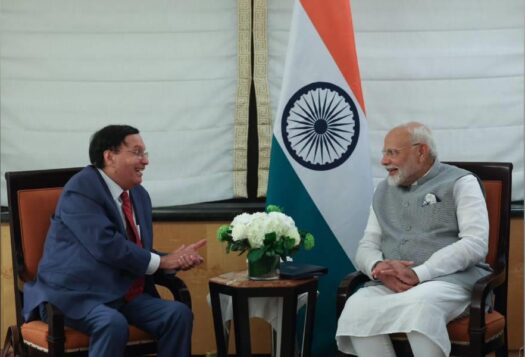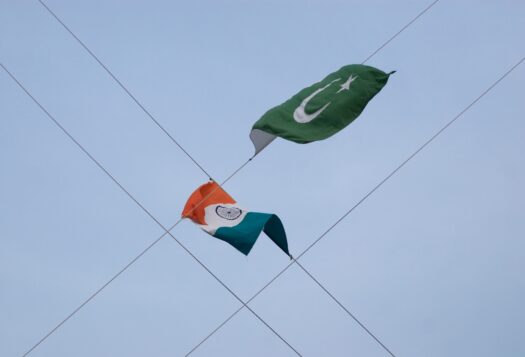
History is key to making sense of the utility of nuclear weapons to Pakistan, and the state’s heavy reliance on them. A point that is often ignored is that India went nuclear even when there was no need for it. Zachary Keck rightly argues that India’s nuclear development was a mistake because it has not served the purpose of deterring China, since China only enacts low intensity attacks along their shared border.
Brig. Naeem Salik in his book, The Genesis of South Asian Nuclear Deterrence: Pakistan’s Perspective, studied how and why India’s nuclear program began, and concluded that Prime Minister Jawaharlal Nehru and father of the Indian bomb Dr. Homi Bhabha recognized the dual nature of nuclear technology, and believed it could be beneficial for India.
Moreover, history has shown that what matters in terms of risks is not whether or not a country has nuclear weapons, but what it intends to do with them. And that we often don’t exactly know. An example can be that of India when it conducted a “peaceful nuclear explosion,” in the early 1970s. This was seen then as hard proof that India was looking to become a nuclear power, given the country’s long feud with Pakistan. For the same reason, as a deterrent to India, Pakistan developed itself into a nuclear- weapon state.
The story of the nuclearization of South Asia is also a story of Indian ambitions for modernization, and Pakistan’s paranoid efforts to catch up. Pakistan’s program has been reactive to India’s nuclear hegemony. Recent statements from Pakistani diplomats show that Pakistan has “no desire to engage in a conventional or nuclear arms race in South Asia.” But if needed, Pakistan will rise to the challenge. This is especially keeping in mind the current ceasefire violations along the Line of Control by India.
Aggression means any aggression against Pakistan, whether conventional or nuclear, and full spectrum deterrence means that aggression will be responded to with nuclear weapons. With the exception of India and China, every other nuclear nation has a policy of first use of weapons to any outside misadventure taken against them. Former foreign secretary Shamshad Ahmad puts it very aptly: “The development of our nuclear programme will be determined solely by such requirement which is now an indispensable part of our security doctrine.”
India’s nuclear program is moving forward steadily, without any hindrance from great powers. Pakistan’s problem is not that India has nuclear warheads— even if India has just one functional warhead, it is one too many. That means Pakistan reserves the right to take all appropriate measures for its security.
India, a country in violation of United Nations Security Council resolutions on matters of international peace and security, such as the Jammu and Kashmir dispute, by no means qualifies for a special status in the Security Council. It secretly pursued nuclear weapons and declared in the late 1990s, yet the international community engaged with New Delhi, constantly extending a hand of friendship, exemplified by different diplomatic measures such as the Indo-US nuclear deal. It’s a country that is favored for Nuclear Suppliers Group membership, without signing the Nuclear Nonproliferation Treaty.
Carnegie Endowment of International Peace and Stimson Center’s recent report A Normal Nuclear Pakistan characterizes the Pakistani government’s position as dangerous. It is difficult to understand why every year such reports want to stop Pakistan from increasing its nuclear arsenal, when it is only defending itself. Munir Akram, former Pakistani ambassador to the UN, very rightly said:
“Pakistan’s is not the ‘fastest growing nuclear arsenal’. In fact, with the revival of their Cold War post the Ukraine crisis, the US and Russia have deployed the largest number of additional nuclear weapons last year.”
Is Pakistan the only “maniacal” country that flaunts its weapons? Isn’t it true that India after its nuclear explosion in 1998 warned Pakistan that it “should realize the change in the geo-strategic situation in the region,” and “roll back its anti-India policy, especially with regard to Kashmir”? Didn’t Israel blackmail the world into accepting their domination of the region, on the back of their nuclear arsenal? Also, a higher nuclear warhead count doesn’t mean superiority. France has more bombs than China, and USSR had more warheads than the United States. That doesn’t mean France has an advantage over China. The basic aim is to deter enemies from nuclear attack.
Despite dramatization of Pakistan’s nuclear capabilities, it is quite clear that South Asia remained safe from any major conflict due to Pakistan’s nuclear weapons. Furthermore, Foreign Secretary Aizaz Ahmad Chaudhry accurately points out that “Pakistan had been obliged to develop nuclear capability for self-defense and deterrence,” adding that it was an “existential choice that Pakistan made to preserve strategic stability in South Asia. However, despite cancellation of NSA-level talks due to the Kashmir issue, both countries need to establish a good framework for dialogue based on diplomacy, statesmanship, an awareness of history, and an acknowledgement that states can change over time. This will make the region peaceful, and will be key to tackling the risk of nuclear weapons in future.
***
Usman Ali Khan is a freelance writer with a degree in Defence and Strategic Studies
***
Image: Anadolu Agency, Getty


